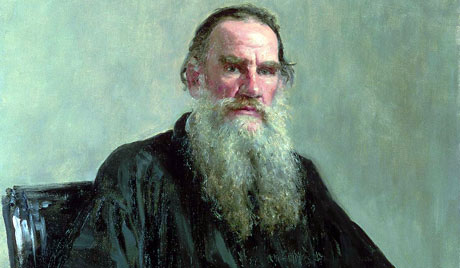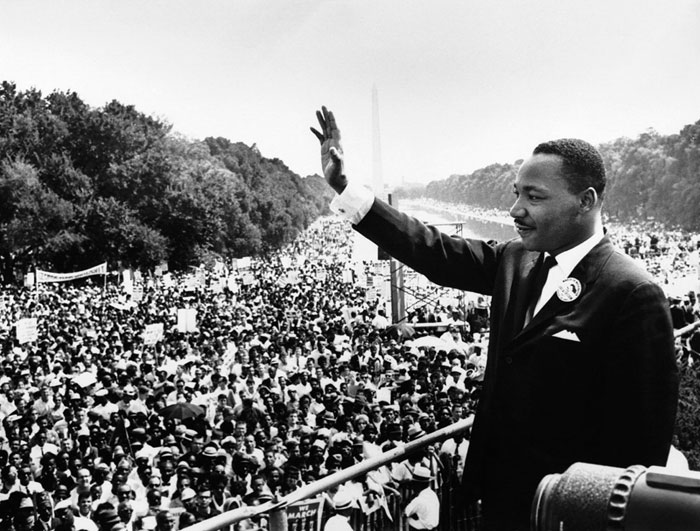Thou Shalt Not Kill
By John Scales Avery
14 May, 2012
Countercurrents.org
One of the functions of good literature is to help us to put ourselves imaginatively into the skin of another person. Good literature (and for that matter, good cinema and television) ought to broaden the range of human sympathy, allowing us to share the feelings of other people who are very different from ourselves.
 It is an interesting fact that Leo Tolstoy, who is generally considered to have been one of the greatest novelists of all time, was deeply aware of ethical problems, especially as an old man. “...The sharpest of all contradictions”, Tolstoy wrote, “can be seen between the government’s professed faith in the Christian law of the brotherhood of all humankind, and the military laws of the state, which force each young man to prepare himself for enmity and murder...”
It is an interesting fact that Leo Tolstoy, who is generally considered to have been one of the greatest novelists of all time, was deeply aware of ethical problems, especially as an old man. “...The sharpest of all contradictions”, Tolstoy wrote, “can be seen between the government’s professed faith in the Christian law of the brotherhood of all humankind, and the military laws of the state, which force each young man to prepare himself for enmity and murder...”
In 1894, the young Indian lawyer, Mohandas K. Gandhi, (who was then working for the civil rights of Indians in South Africa), read Tolstoy’s books on Christianity and was greatly influenced by them. Gandhi wrote a review of Tolstoy's “The Kingdom of God is Within Us”, and in 1909 he sent Tolstoy an account of the activities of the civil rights movement in South Africa.
He received a reply in which Tolstoy said: “...The longer I live, and especially now, when I vividly feel the nearness of death, the more I want to tell others what I feel so particularly clearly and what to my mind is of great importance - namely that which is called passive resistance, but which is in reality nothing else but the teaching of love, uncorrupted by false interpretations. That love – i.e. The striving for the union of human souls and the activity derived from that striving - is the highest and only law of human life, and in the depth of his soul every human being knows this (as we most clearly see in children); he knows this until he is entangled in the false teachings of the world. This law was proclaimed by all - by the Indian as by the Chinese, Hebrew, Greek and Roman sages of the world. I think that this law was most clearly expressed by Christ, who plainly said that ‘in this alone is all the law and the prophets’...”
“...The peoples of the Christian world have solemnly accepted this law, while at the same time they have permitted violence and built their lives on violence; and that is why the whole life of the Christian peoples is a continuous contradiction between what they profess, and the principles on which they order their lives - a contradiction between love accepted as the law of life, and violence which is recognized and praised, acknowledged even as a necessity in different phases of life, such as the power of rulers, courts, and armies...”
“This year, in the spring, at a Scripture examination in a girls’ high school in Moscow, the teacher and the bishop present asked the girls questions on the Commandments, and especially on the sixth. After a correct answer, the bishop generally put another question, whether murder was always in all cases forbidden by God’s law; and the unhappy young ladies were forced by previous instruction to answer ‘not always’ - that murder was permitted in war and in the execution of criminals. Still, when one of these unfortunate young ladies (what I am telling is not an invention, but a fact told to me by an eye witness) after her first answer, was asked the usual question, if killing was always sinful, she, agitated and blushing, decisively answered ‘Always’, and to all the usual sophisms of the bishop, she answered with decided conviction that killing always was forbidden in the Old Testament and forbidden by Christ, not only killing, but every wrong against a brother. Notwithstanding all his grandeur and arts of speech, the bishop became silent and the girl remained victorious.”
In the hands of Gandhi, non-violent passive resistance became a practical political force., which he and his followers used to free India from colonial domination. To the insidious argument that “the end justifies the means”, Gandhi answered firmly: “They say ‘means are after all means’. I would say ‘means are after all everything’. As the means, so the end. Indeed the Creator has given us control (and that very limited) over means, none over end... The means may be likened to a seed, and the end to a tree; and there is the same inviolable connection between the means and the end as there is between the seed and the tree. Means and end are convertible terms in my philosophy of life.”
In other words, a dirty method produces a dirty result; killing produces more killing; hate leads to more hate. But there are positive feedback loops as well as negative ones. A kind act produces a kind response; a generous gesture is returned; hospitality results in reflected hospitality. Hindus and Buddhists call this principle “the law of karma”.

The ideas of non-violence were also used in the civil rights movement in America, led by Martin Luther King, Jr. In 1967, a year before his assassination, Dr. King forcefully condemned the Viet Nam war in an address at a massive peace rally in New York City. He felt that opposition to war followed naturally from his advocacy of non-violence. In his book, “Strength to Love”, Dr. King wrote,“Wisdom born of experience should tell us that war is obsolete. ...If we assume that life is worth living, and that man has a right to survival, then we must find an alternative to war ... I am convinced that the Church cannot be silent while mankind faces the threat of nuclear annihilation. If the church is true to her mission, she must call for an end to the nuclear arms race.”
Concerning the Christian principle of loving one’s enemies, Dr. King wrote: “Why should we love our enemies? Returning hate for hate multiplies hate, adding deeper darkness to a night already devoid of stars. Darkness cannot drive out darkness; only light can do that. Hate cannot drive out hate. Only love can do that ... Love is the only force capable of transforming an enemy into a friend. We never get rid of an enemy by meeting hate with hate; we get rid of an enemy by getting rid of enmity... It is this attitude that made it possible for Lincoln to speak a kind word about the South during the Civil War, when feeling was most bitter. Asked by a shocked bystander how he could do this, Lincoln said, ‘Madam, do I not destroy my enemies when I make them my friends?’ This is the power of redemptive love.”
Today, with the world poised on the edge of a disaster that might be produced by escalatory cycles of revenge and counter-revenge, we need to remember wise voices from the past, among them the voices of Tolstoy, Gandhi and King. They tell us of the immorality, waste and folly of war. They tell us to recognize the humanity of all other humans. They tell us to show the love and generosity of spirit that can turn enemies into friends.
Suggestions for further reading
1. Leo Tolstoy, “The Kingdom of God is Within You”, (1894), Project Gutenberg.
2. Mohandas K. Gandhi, “My Experiments With Truth”, (1929), Beacon Press, (1993).
3. Martin Luther King, Jr., “Strength to Love”, (1963).
John Scales Avery is a theoretical chemist noted for his research publications in quantum chemistry, thermodynamics, evolution, and history of science. Since the early 1990s, Avery has been an active World peace activist. During these years, he was part of a group associated with the Pugwash Conferences on Science and World Affairs. In 1995, this group received the Nobel Peace Prize for their efforts. Presently, he is an Associate Professor in quantum chemistry at the University of Copenhagen
Due to a recent spate of abusive, racist and xenophobic comments we are forced to revise our comment policy and has put all comments on moderation que.


